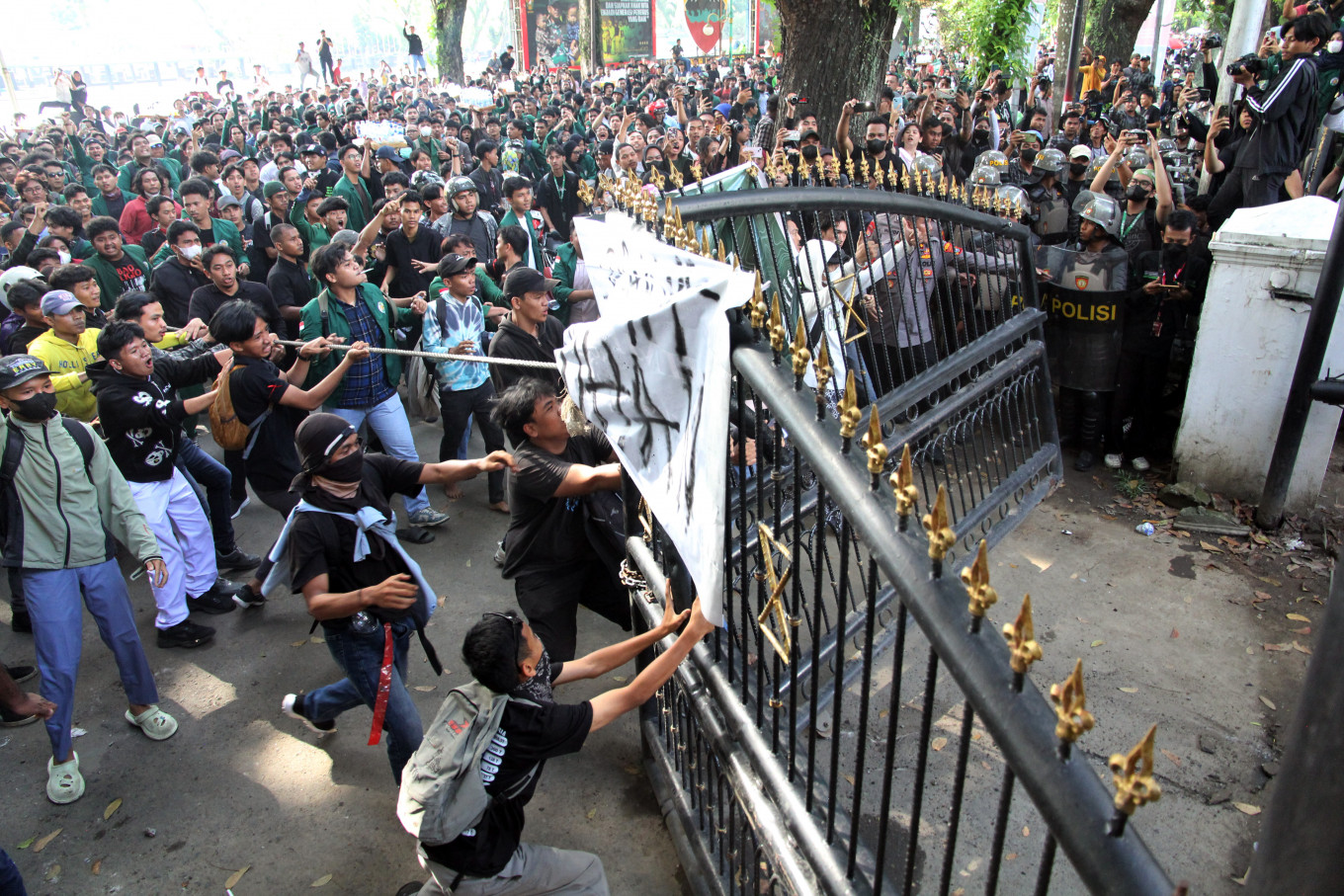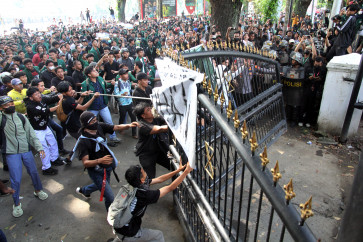Popular Reads
Top Results
Can't find what you're looking for?
View all search resultsPopular Reads
Top Results
Can't find what you're looking for?
View all search resultsBoiling point of rage: Mr. President, act now!
Every mass upheaval is the result of an accumulation of long-held dissatisfaction.
Change text size
Gift Premium Articles
to Anyone
W
hen a country is rocked by major unrest, we are often tempted to see it as a spontaneous explosion of momentary anger. However, for sociologists and political experts, every mass upheaval is the result of an accumulation of long-held dissatisfaction.
The tragedy that befell Affan Kurniawan, an online motorcycle taxi driver (ojol) who died after being run over by an armored tactical vehicle belonging to the police’s Mobile Brigade (Brimob) on Thursday, is a perfect example of this phenomenon. This single event, which occurred during a demonstration, was not the cause but the “boiling point” that ignited the collective rage. This tragic event created a sense of momentum and gave people a reason to finally take to the streets, after previously feeling powerless or afraid to act.
The world has witnessed a recurring pattern, where a tragic event affecting a single innocent individual can trigger an unexpected explosion of collective anger. In the United States, the killing of George Floyd sparked a wave of massive protests that exposed systemic racism. In France, the shooting of Nahel Merzouk ignited riots that highlighted issues of discrimination. In Iran, the death of Mahsa Amini sparked massive demonstrations demanding freedom.
The recent upheaval is not a sudden burst of anger but a consequence of the accumulation of various problems. Over the last three months, public anger has increased significantly, driven by, first, a real economic disparity. The rise in prices of basic necessities and stagnant wages have triggered feelings of deprivation among the people. The stark contrast with the issue of increased allowances and salaries for members of the legislature only reinforces the perception that the elites no longer care.
Second, controversial policies and revision of laws, both in substance and process, such as the Indonesia Military (TNI) Law, the Criminal Law Procedures Code (KUHAP) bill and the Coal and Mineral Law, have triggered public distrust in the country's political direction. Third, a crisis of trust in law enforcement. The continuous violence committed by security forces during demonstrations has eroded the narrative that they are the protectors of the people.
The death of Affan has become the perfect symbol of all these injustices. This tragedy has convinced the people that there is no longer any guarantee of safety for anyone.
To quell this situation, President Prabowo Subianto must take the right and careful steps, learning from bitter past experiences.



















